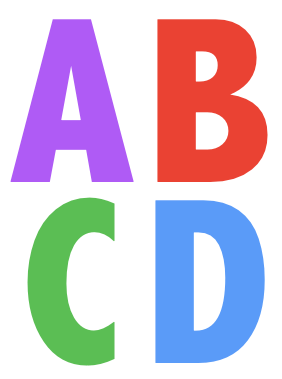Page updated in August 2022
Using können, möchten and müssen

Modal verbs allow you to describe an ability, a wish or an obligation – in other words, your underlying emotions or your mood.
For instance, your mood would be quite different in the three sentences below:

- I can do my homework. → Mood: optimism, self-confidence
- I would like to do my homework. → Mood: eagerness, an expressed wish
- I must do my homework. → Mood: a sense of obligation, necessity
By using the verbs that correspond to these ideas in German, you can move beyond mere facts to feelings and interpretations.
- To say you can in German: können – to describe your abilities
- To say you would like to: möchten (the conditional form of mögen – to like) – to describe your wishes and hopes
- To say you have to or must do something: müssen – to describe your obligations
Conjugation Table and Quizzes
| möchten – would like | ||
|---|---|---|
| Singular | Plural | |
| 1st person | ich möchte | wir möchten |
| 2nd person | du möchtest | ihr möchtet |
| 3rd person | er / sie / es möchte | sie möchten |
| Formal Address | Sie möchten |
The conjugation rules that apply to möchten apply to all the other modal verbs as well, for example, können and müssen. Once you’ve learned how one verb works, you’ll be able to use them all.
Patterns to notice:
- The first person and third person singular have the same endings. This pattern is repeated with all modal verbs. There is no t on the third person singular.
- The first person and third person plural also have the same endings. This pattern is repeated with all German verbs.
Keep these patterns in mind as you conjugate können and müssen below:
Simple sentences with möchten, können and müssen:
In full sentences with a modal verb and an infinitive verb, the modal verb is placed second, while the infinitive goes to the end of the sentence.
- Ich möchte Limonade trinken. – I’d like to drink lemonade.
- Darüber möchte ich nicht reden. – I don’t want to talk about that.
- Ich möchte ihn sehen. – I’d like to see him.
- Ich kann es machen. – I can do it.
- Ich kann es nicht machen. – I can’t do it.
- Ich muss jetzt gehen. – I have to go now.
- Ich muss mit dir sprechen. – I must speak with you.
Quiz

In the quiz below, you will need to choose the correct option for filling the blanks in each sentence.
Remember that the modal verb (möchten, können or müssen) should be conjugated and placed second in a typical German sentence, while the infinitive should be placed at the end of the sentence.
